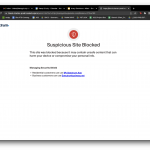Terms Of Use:
By using this website (gametechia.com or www.gametechia.com) you are confirming your agreement to its terms of use as mentioned below.
1. This website is primarily meant for recreational use. We do not guarantee the correctness and accuracy of any information appearing on this website.
2. You may land on external websites by clicking on advertisements appearing on this website and from external links provided on this website to direct you to relevant information or products.
Once you leave this website, you are governed by the terms of use and privacy policy of the websites that you are landing on. Also, We cannot guarantee the correctness and accuracy of information appearing on external sites.
3. Product reviews and information appearing on this website is based on the information and data as provided by the manufacturer/distributor/agent related to the product/service and also based on authors own understanding of the product or services.
It is highly recommended that you do your own research before buying/using any product or service discussed on this website.
4. We may review health, nutrition or fitness related products and apps. It is essential that you consult your physician or a heath care practitioner before using any health related products or services.
Gametechia.com, its owners and writers are not qualified to offer health, fitness, or expert advice in any other field.
5. Technical, Medical and scientific information changes very rapidly.
Hence, we do not guarantee the accuracy of any information appearing on this site. The chances of information on this website being out of date or even inaccurate and erroneous cannot be ruled out.
6. We cannot be held responsible for any system crash or data loss if it occurs during/after following How-to Guides published on this website.
It is recommended that you create a backup of your data and software, before trying anything on your computer.
7. By using this website you are confirming that you agree to all the Terms & Conditions mentioned above and elsewhere on this website.
We reserve the right to change, modify or delete any/all information appearing on this website at any time without providing notice of such actions.









